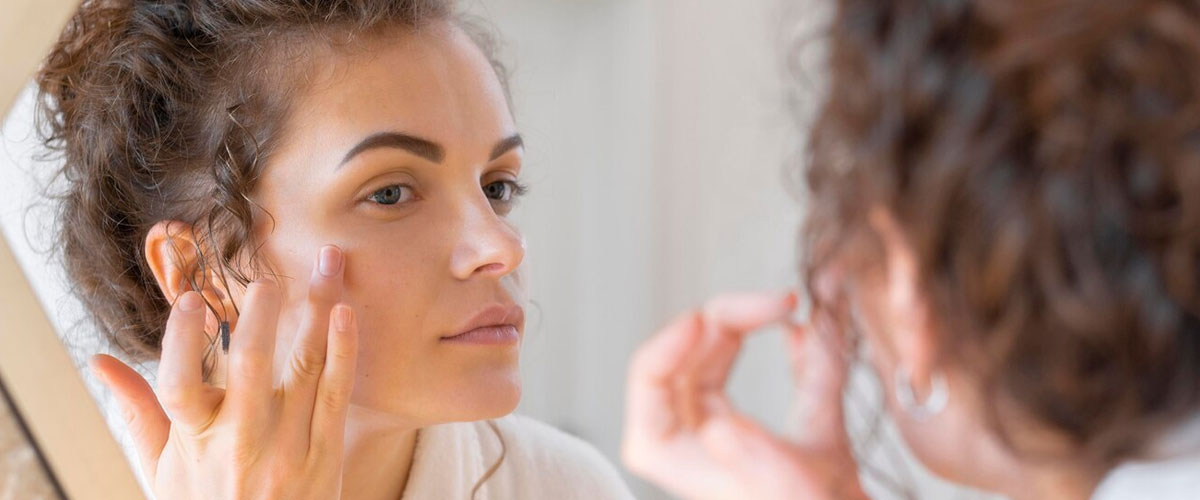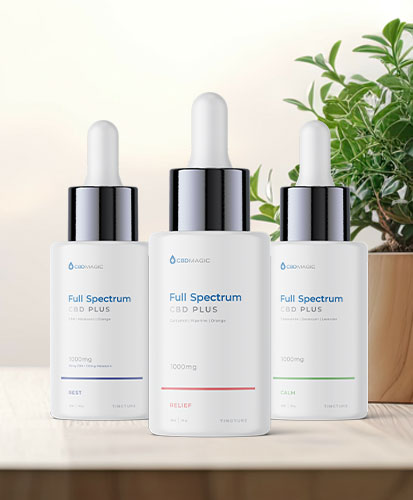- You have no items in your shopping cart
- Continue Shopping

CBD has emerged as a buzzy ingredient in the skincare world, touted for its potential to alleviate various skin concerns, including acne. Acne, a common skin condition affecting millions worldwide, can cause physical discomfort and psychological distress. From pesky pimples to painful cysts, acne can manifest in various forms, making it a frustrating challenge to manage. However, with the rise of CBD-infused skincare products, many are turning to this natural compound in hopes of finding relief.
Understanding Acne
Acne, often associated with adolescence but prevalent among adults as well, is characterized by the formation of comedones (whiteheads and blackheads), papules, pustules, nodules, or cysts. Its development is multifactorial, involving factors such as hormonal fluctuations, genetics, excess sebum production, inflammation, and bacterial overgrowth. When these elements converge, they create an environment conducive to acne formation, leading to the characteristic redness, swelling, and sometimes pain associated with acne lesions.
CBD: Exploring Its Mechanisms
Cannabidiol, or CBD, is a non-intoxicating compound found in the cannabis plant. Unlike its counterpart, tetrahydrocannabinol (THC), CBD does not produce the psychoactive effects commonly associated with cannabis use. Instead, CBD interacts with the body’s endocannabinoid system (ECS), a complex network of receptors involved in regulating various physiological functions, including immune response, mood, and pain perception. Through its interaction with the ECS, CBD exerts anti-inflammatory, antioxidant, and sebostatic effects, making it a promising candidate for acne management.
Scientific Evidence
Numerous studies have explored the potential of CBD in treating acne, both in preclinical and clinical settings. These studies have yielded promising results, demonstrating CBD’s ability to modulate key pathways involved in acne pathogenesis. For instance, research suggests that CBD can inhibit the production of inflammatory cytokines and reduce sebum production by regulating the activity of sebaceous glands. Additionally, CBD exhibits antibacterial properties, which may help mitigate the proliferation of acne-causing bacteria on the skin.
Potential Benefits of CBD for Acne
CBD offers a range of potential benefits for acne management, making it an attractive option for those seeking natural remedies. Here are some of the ways CBD may help alleviate acne symptoms:
- Anti-inflammatory properties: CBD possesses potent anti-inflammatory properties, which can help reduce redness, swelling, and discomfort associated with acne lesions.
- Sebum regulation: By interacting with sebaceous glands, CBD may help regulate sebum production, preventing pores from becoming clogged and reducing the risk of acne formation.
- Soothing effects: CBD’s soothing effects can provide relief from the irritation and itching often experienced with acne, promoting faster healing and minimizing scarring.
- Antibacterial action: CBD exhibits antibacterial properties, which may help combat the proliferation of acne-causing bacteria on the skin, leading to clearer, healthier-looking skin.
- Antioxidant protection: CBD’s antioxidant properties help protect the skin from oxidative stress and environmental damage, contributing to overall skin health and resilience against acne flare-ups.
Considerations and Risks
While CBD shows promise as a natural remedy for acne, it is essential to approach its use with caution. As with any skincare product, individuals should be mindful of potential side effects and interactions with other medications. Additionally, not all CBD products are created equal, and quality control standards can vary widely across the market. To ensure safety and efficacy, consumers should seek out reputable brands that adhere to stringent manufacturing practices and provide transparent information about their products’ ingredients and potency.
Future Directions and Research Opportunities
As interest in CBD skincare continues to grow, so too does the need for further research to elucidate its mechanisms of action and optimize its therapeutic potential. Future studies should explore the long-term effects of CBD on acne management, as well as its compatibility with existing acne treatments. Additionally, research into novel delivery methods and formulations could enhance the bioavailability and effectiveness of CBD for topical application. By advancing our understanding of CBD’s role in skincare, we can unlock new possibilities for acne treatment and improve the lives of individuals affected by this common dermatological condition.

In conclusion, CBD holds promise as a natural remedy for acne, thanks to its anti-inflammatory, sebum-regulating, and soothing properties. While further research is needed to fully understand its mechanisms of action and optimize its efficacy, the existing evidence suggests that CBD may offer a valuable addition to the skincare toolkit for acne management. As interest in CBD skincare continues to grow, it is essential for consumers to educate themselves about the potential benefits and risks of CBD and make informed decisions when incorporating it into their skincare routines. With careful consideration and guidance from healthcare professionals, CBD-based products may offer relief for those struggling with acne and contribute to healthier, clearer skin.
Looking to try a natural alternative to combat with acne issues? Consider shopping at CBD2HEAL for Canada’s best organic CBD oil.







